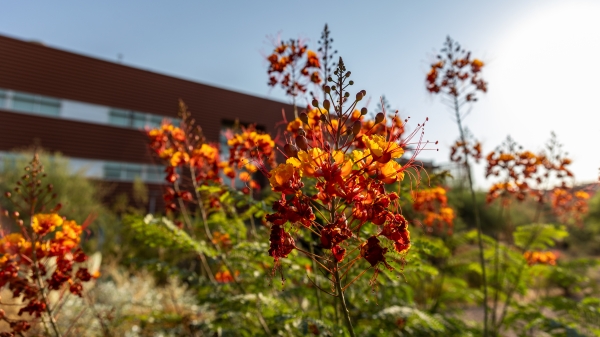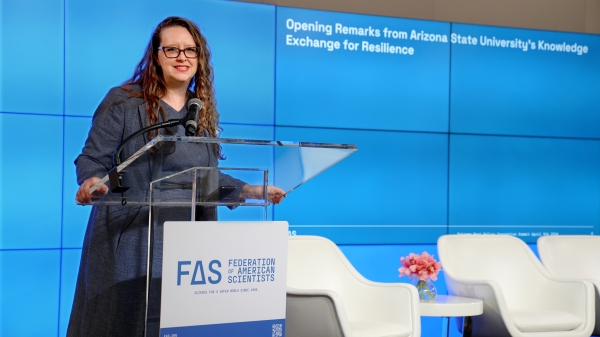Sustainability graduate aims to create harmony between humans, nature

Editor’s note: This is part of a series of profiles for spring 2018 commencement.
With its roots in a plant-based diet, Julia Colbert’s interest in sustainability began to grow. Colbert understood development does not need to come at the cost of our planet, and wanted to find a way to create harmony between humans and nature.
So she enrolled in the School of Sustainability at Arizona State University.
During her time at ASU, Colbert took advantage of every learning opportunity. Through School of Sustainability study abroad programs, she traveled to foreign countries to learn new sustainable practices and solutions. She joined student organizations and accepted jobs at the ASU Sustainability Teacher’s Academy and Decision Center for a Desert City.
In the fall, Colbert will return to ASU to pursue a master's degree in sustainability.
Question: What’s something you learned while at ASU — in the classroom or otherwise — that surprised you or changed your perspective?
Answer: In a sustainability course on equity and justice, I read about a concept called the “capabilities approach.” This idea has remained with me throughout my college career. It argues that if someone has the ability to do something, but does not have the capacity and resources to do it, they will most likely be unable to use that ability to be successful. This applies directly to sustainability. If people do not have the resources and support they need be successful, they will not be able to use their skills and abilities to make the world a better, more sustainable place.
Q: What’s the best piece of advice you’d give to those currently studying (or interested in studying) sustainability at ASU?
A: Since sustainability is a fairly new field, it’s very important to get work experience for both your resume and yourself. Some sustainability professions don’t even exist yet, so finding what you enjoy doing and what you can contribute to the field of sustainability is important for setting yourself up for success. I recommend getting involved in clubs and student organizations, trying a few different internships, asking faculty to assist with research projects, or even offering to do more in a class to deepen your understanding of a topic. Remember, college is a unique time for learning and self-growth because you have almost unlimited opportunities and resources to pursue whatever you choose to pursue — take advantage of this!
Q: What does sustainability mean to you?
A: To me, sustainability means acting with the future in mind. Though it can be difficult to think beyond the next one or two generations, it is integral to sustainability to think about how our actions will impact each other and the planet. This applies to everything from single-use plastics that are contributing to landfills and the Great Pacific Garbage Patch, to treating one another with respect and kindness because, despite all of the bad going on in the world, we all live on this one planet together and need to learn how to collaborate to address the problems we have created.
More Environment and sustainability

Barrett Honors College to host nature walks for science, relaxation
Barrett, The Honors College at Arizona State University is gearing up to participate in the City Nature Challenge (CNC) for the…

Arizona adapting to heat crisis with initiatives featured in ASU report
Arizona State University's Knowledge Exchange for Resilience, also known as KER, released its Recommendations Report on Extreme…

Celebrating Earth Day around the world
Originating in the United States in 1970, Earth Day is now celebrated worldwide. But even before it became an official day, many…